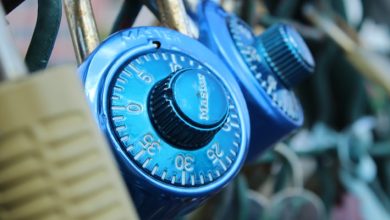How to Safeguard Your Private Keys from Hackers

- Understanding the importance of private keys in cryptocurrency security
- Best practices for generating strong and secure private keys
- Tips for safely storing and backing up your private keys
- The dangers of common hacking techniques used to steal private keys
- How to avoid phishing scams that target private key information
- The role of hardware wallets in enhancing private key security
Understanding the importance of private keys in cryptocurrency security
Private keys are a crucial component of cryptocurrency security. They are essentially a string of alphanumeric characters that serve as a password to access your digital assets. Without your private key, you cannot access or transfer your cryptocurrency holdings. It is important to understand the significance of safeguarding your private keys from hackers who are constantly seeking to exploit vulnerabilities in the system.
One of the main reasons why private keys are so important is that they provide ownership and control over your cryptocurrency assets. By possessing the private key, you have the authority to send and receive funds, as well as make transactions on the blockchain. This level of control is essential for ensuring the security and integrity of your digital assets.
Additionally, private keys are used to generate digital signatures that authenticate transactions on the blockchain. Each time you initiate a transaction, your private key is used to sign the transaction and verify that it is indeed coming from you. This process ensures the validity and authenticity of the transaction, preventing unauthorized access to your funds.
Given the critical role that private keys play in securing your cryptocurrency assets, it is imperative to take proactive measures to protect them from potential threats. This includes storing your private keys in a secure location, such as a hardware wallet or encrypted USB drive, and refraining from sharing them with anyone else. By taking these precautions, you can mitigate the risk of your private keys falling into the wrong hands and safeguard your digital assets from malicious actors.
Best practices for generating strong and secure private keys
When it comes to safeguarding your private keys from hackers, it is crucial to follow best practices for generating strong and secure private keys. By taking the necessary precautions, you can greatly reduce the risk of unauthorized access to your sensitive information.
One of the most important steps in protecting your private keys is to use a reliable random number generator. This will help ensure that your keys are truly unique and not easily guessable by hackers. Additionally, it is recommended to use keys that are at least 256 bits in length to further enhance security.
Furthermore, it is essential to keep your private keys confidential and never share them with anyone else. Be cautious when storing your keys electronically, as they can be vulnerable to cyber attacks. Consider using a secure hardware device or encrypted storage to safeguard your keys from potential threats.
Regularly updating your private keys is another good practice to prevent unauthorized access. By changing your keys periodically, you can minimize the chances of hackers gaining access to your sensitive data. Remember to securely store your old keys in case you need to revert to them in the future.
In conclusion, by following these best practices for generating strong and secure private keys, you can significantly reduce the risk of falling victim to cyber attacks. Protecting your private keys is essential for maintaining the confidentiality and integrity of your data, so it is important to take the necessary steps to safeguard them from potential threats.
Tips for safely storing and backing up your private keys
When it comes to safeguarding your private keys from hackers, one of the most important steps you can take is to securely store and back them up. Here are some tips to help you keep your private keys safe:
- Choose a secure storage method: Consider using a hardware wallet or a secure offline storage option to store your private keys. Avoid storing them on your computer or in the cloud, as these can be more easily compromised by hackers.
- Back up your private keys: Make sure to create multiple backups of your private keys and store them in different secure locations. This way, if one backup is lost or compromised, you will still have access to your keys.
- Encrypt your backups: Before storing your private key backups, make sure to encrypt them to add an extra layer of security. Use a strong encryption method and keep the encryption key separate from the backups.
- Keep your private keys offline: Whenever possible, keep your private keys offline to minimize the risk of them being accessed by hackers. Only connect your hardware wallet or offline storage device to the internet when necessary.
- Regularly update your security measures: Stay vigilant and keep your security measures up to date. This includes updating your software, using strong passwords, and monitoring your accounts for any suspicious activity.
By following these tips for safely storing and backing up your private keys, you can help protect your assets from falling into the wrong hands. Remember, the security of your private keys is crucial to keeping your cryptocurrencies safe and secure.
The dangers of common hacking techniques used to steal private keys
Private keys are crucial for securing your digital assets, but they are also a prime target for hackers looking to steal your funds. There are several common hacking techniques that cybercriminals use to obtain private keys, putting your assets at risk.
One common technique is phishing, where hackers send fraudulent emails or messages pretending to be a legitimate entity, such as a cryptocurrency exchange or wallet provider. Once you click on a malicious link and enter your private key, the hackers can easily access your funds.
Another dangerous technique is malware, which can infect your device through malicious software or apps. Once installed, the malware can record your keystrokes or take screenshots, giving hackers access to your private keys without your knowledge.
Brute force attacks are also a significant threat, where hackers use automated software to guess your private key by trying different combinations until they find the correct one. This method can be time-consuming but is still a viable option for determined hackers.
To protect your private keys from these hacking techniques, it is essential to use secure hardware wallets, enable two-factor authentication, and regularly update your devices and software to patch any vulnerabilities. Additionally, be cautious of unsolicited emails or messages asking for your private key and only use trusted sources when entering sensitive information. By taking these precautions, you can safeguard your private keys and protect your digital assets from malicious actors.
How to avoid phishing scams that target private key information
One of the most common ways hackers try to steal private key information is through phishing scams. These scams typically involve sending fake emails or messages pretending to be from a legitimate source, such as a cryptocurrency exchange or wallet provider. Here are some tips to help you avoid falling victim to these scams:
1. **Be cautious of unsolicited emails**: If you receive an email asking for your private key information or other sensitive data, be wary. Legitimate companies will never ask you to provide this information via email.
2. **Double-check the sender’s email address**: Before clicking on any links or providing any information, verify that the email is actually from the company it claims to be from. Sometimes scammers will use email addresses that are very similar to legitimate ones to trick you.
3. **Avoid clicking on links in emails**: If you’re unsure about an email, it’s best to go directly to the company’s website by typing the URL into your browser. This way, you can ensure you’re visiting the legitimate site and not a phishing page.
4. **Keep your private key secure**: Never share your private key with anyone, and make sure to store it in a secure location. If someone else gains access to your private key, they can easily steal your cryptocurrencies.
By following these tips and staying vigilant, you can help protect your private key information from falling into the hands of hackers. Remember, it’s always better to be safe than sorry when it comes to safeguarding your assets.
The role of hardware wallets in enhancing private key security
Hardware wallets play a crucial role in enhancing the security of private keys. These physical devices are specifically designed to store private keys offline, making them less vulnerable to hacking attempts. By storing private keys on a hardware wallet, users can significantly reduce the risk of unauthorized access to their cryptocurrency holdings.
One of the main advantages of hardware wallets is that they are immune to computer viruses and malware. Since private keys are stored offline on the device, hackers are unable to access them through online attacks. This provides an extra layer of protection for private keys, ensuring that they remain secure from external threats.
Additionally, hardware wallets typically require the user to physically confirm transactions on the device itself. This means that even if a hacker gains access to the private keys, they would still need physical access to the hardware wallet to authorize any transactions. This added security measure further enhances the protection of private keys.
Overall, hardware wallets are an essential tool for anyone looking to safeguard their private keys from hackers. By storing private keys offline on a physical device, users can greatly reduce the risk of unauthorized access and protect their cryptocurrency holdings. Investing in a hardware wallet is a proactive step towards enhancing the security of private keys and ensuring the safety of digital assets.



